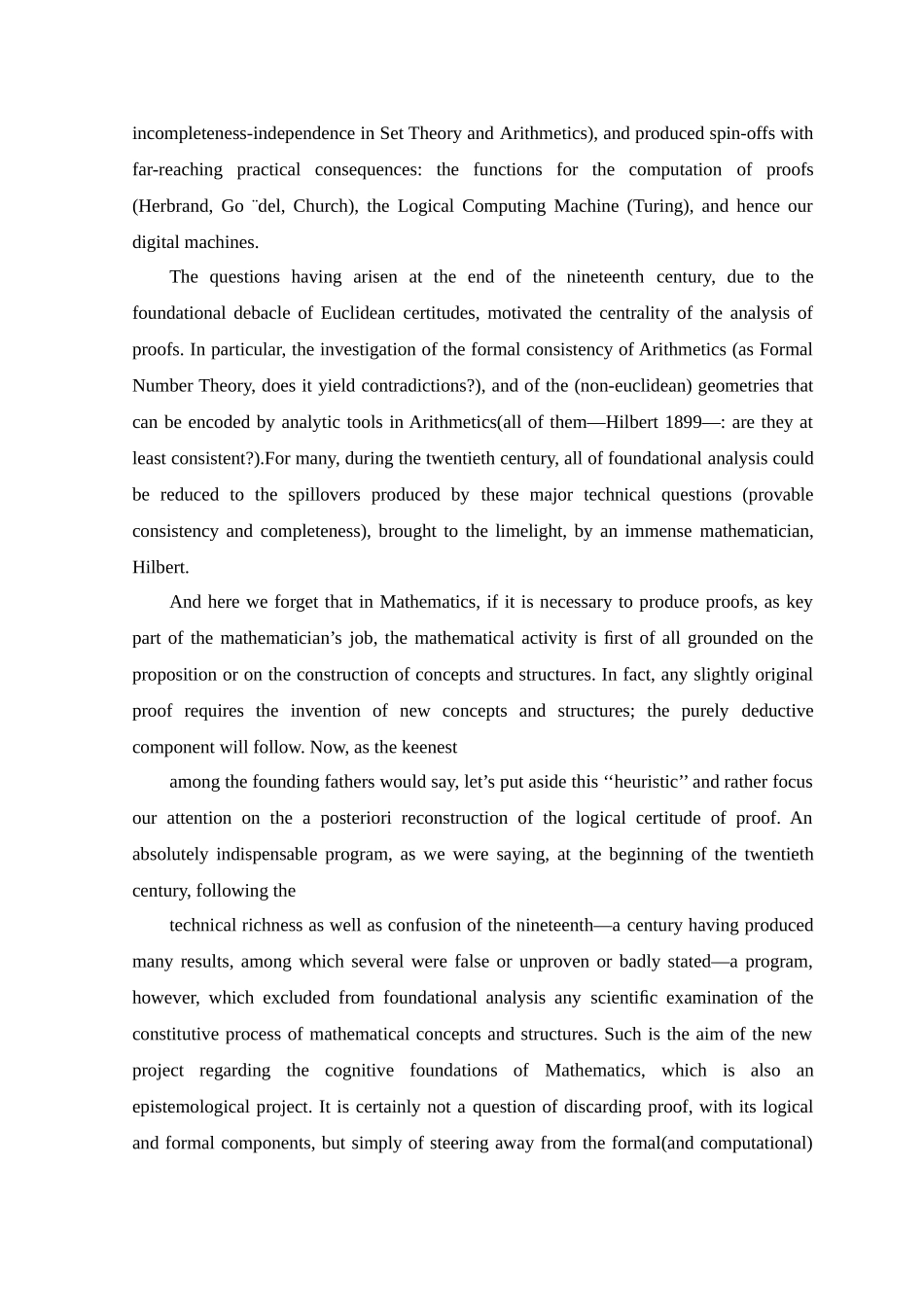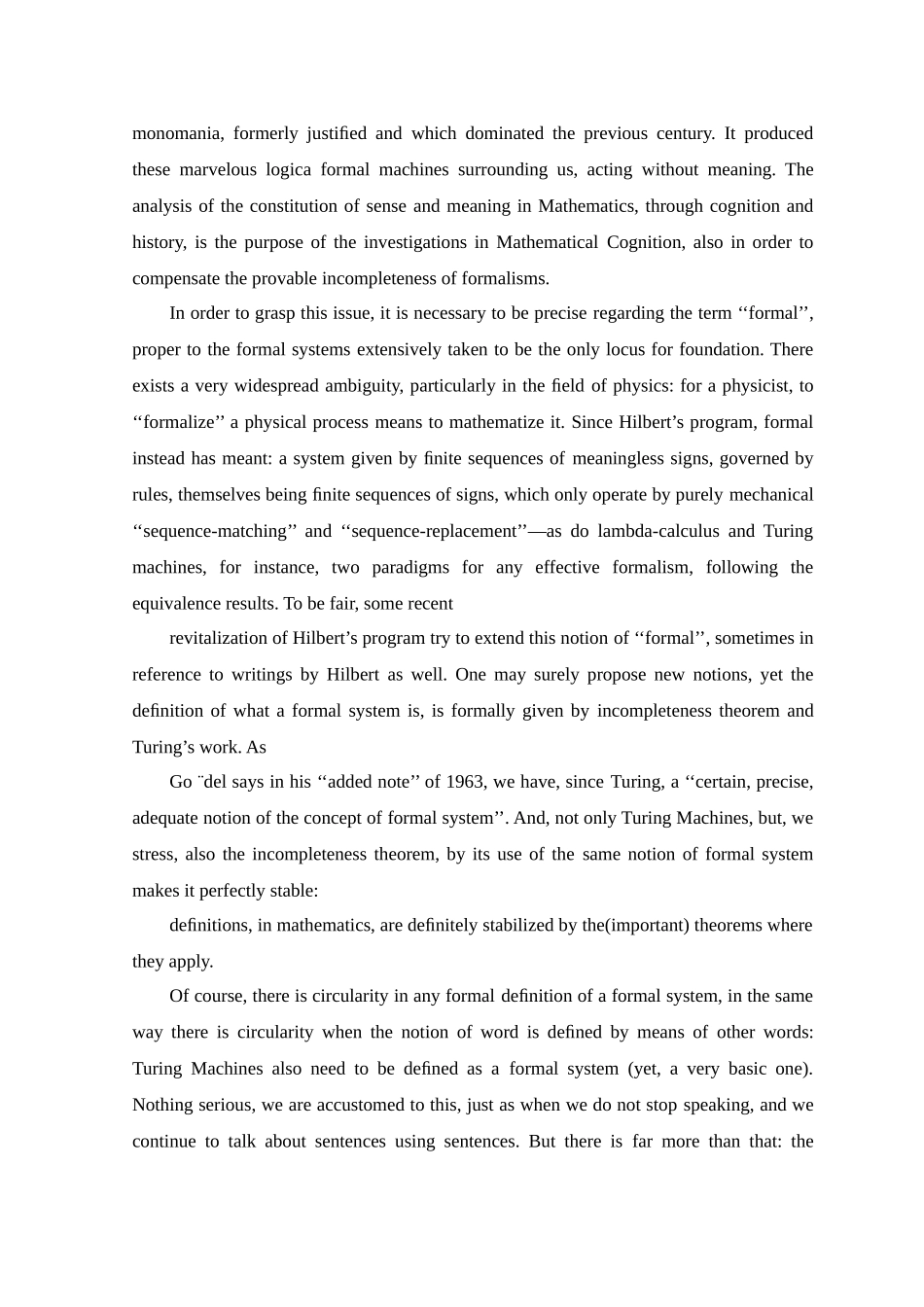Mathematical Intuition and the Cognitive Roots of MathematicalConceptsGiuseppe Longo • Arnaud ViarougePublished online: 20 January 2025Springer Science+Business Media B.V. 2025AbstractThe foundation of Mathematics is both a logica formal issue and an epistemological one. By the first, we mean the explicitation and analysis of formal proof principles, which, largely a posteriori, ground proof on general deduction rules and schemata. By the second, we mean the investigation of the constitutive genesis of concepts and structures, the aim of this paper. This ‘‘genealogy of concepts’’, is necessary both in order to enrich the foundational analysis with an often disregarded aspect (the cognitive and historical constitution of mathematical structures) and because of the provable incompleteness of proof principles also in the analysis of deduction. For the purposes of our investigation, we will hint here to a philosophical frame as well as to some recent experimental studies on numerical cognition that support our claim on the cognitive origin and the constitutive role of mathematical intuition.Keywords: Numerical cognition Mathematical intuition Foundations of mathematics1 From Logic to CognitionOver the course of the twentieth century, the relationships between Philosophy and Mathematics have been dominated by Mathematical Logic. A most interesting area of Mathematics which, from 1931 onwards, year of one of the major mathematical results of the century (Go ¨delian Incompleteness), enjoyed the double status of a discipline that is both technically profound and philosophically fundamental. From the foundational point of view, Proof Theory constituted its main aspect, also on account of other remarkable results (Ordinal A...


